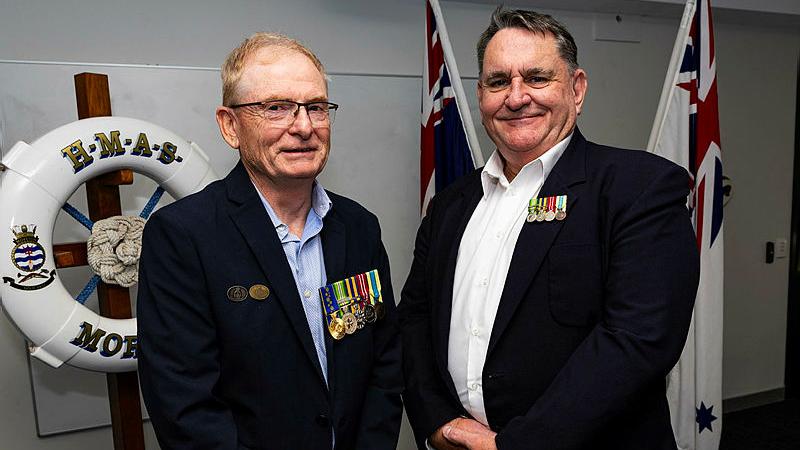Warning: this story contains images and video of surgical procedures.
Gloria, a beloved pet green tree python, bit off more than she could chew and ingested a puppy pee pad along with her dinner.
Luckily, her attentive owners noticed something was amiss, and took the snake to the UQ VETS clinic at Gatton for treatment.
Iffy Glendinning, UQ VETS avian and exotics veterinary technician, said the puppy pad was being used as bedding in Gloria’s enclosure and was ingested as she ate a rat as part of her routine diet.
“Unfortunately, during this particular feed, the rat ended up entangled in the puppy pad and Gloria swallowed the two together,” Mrs Glendinning said.
“We had to try to remove the puppy pee pad in the least invasive way possible.”
Gloria’s backwards-facing – or aglyphous – teeth, typically used by snakes to keep swallowed prey from escaping, made retrieving her unwanted meal more challenging.
While Gloria was anaesthetised, avian and exotics veterinarian Dr Mark Owens and internal medicine specialist Dr Caitlin Mack passed a flexible endoscope down the snake’s oesophagus.
“The grasping tool attached to the endoscope was used to latch on to the puppy pee pad and gently remove it up her oesophagus and out her mouth,” Mrs Glendinning said.
“She woke up one puppy pad lighter.”
Thanks to the careful work of UQ VETS, Gloria has made a full recovery.
Mrs Glendinning said it was surprisingly common for snakes to ingest foreign materials.
“Snakes don’t go out of their way to ingest odd things but if it smells like food, then it’s easily mistaken for food,” she said.
“To avoid mishaps like Gloria’s, we recommend that snakes are fed on a bare surface outside their enclosure, and that their bedding is able to be broken down in case it’s accidentally ingested.
“While not the most aesthetic bedding, newspaper is often the safest option.”
The UQ VETS team said pet owners should always call a veterinarian for advice if they think their animal companion may have eaten something they shouldn’t have.
“No matter the species, anything has the potential to become an obstruction within the gut and a very serious emergency,” Mrs Glendinning said.
“On top of the risk of obstruction, some things may also be toxic to the animal once ingested.”
Mrs Glendinning, who completed her Bachelor of Veterinary Technology at UQ’s Gatton campus, said she feels lucky to now work with animals, great and small, in her role at UQ VETS.
“From an emu that was kicked in the neck by a miniature pony to an oscar fish with an infectious disease and a bilby from a zoo that needed surgery, you never know what will walk through our doors – and that’s what makes this job so exciting.”






